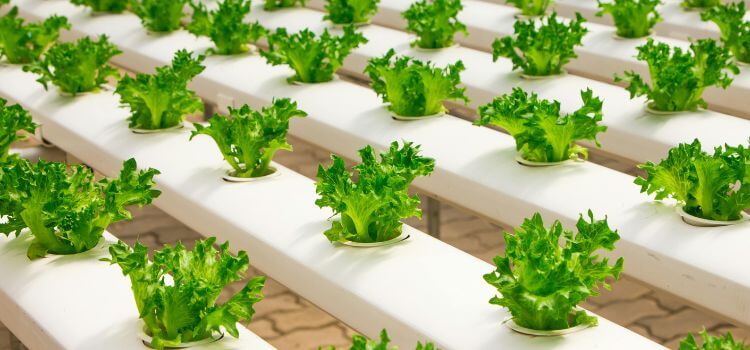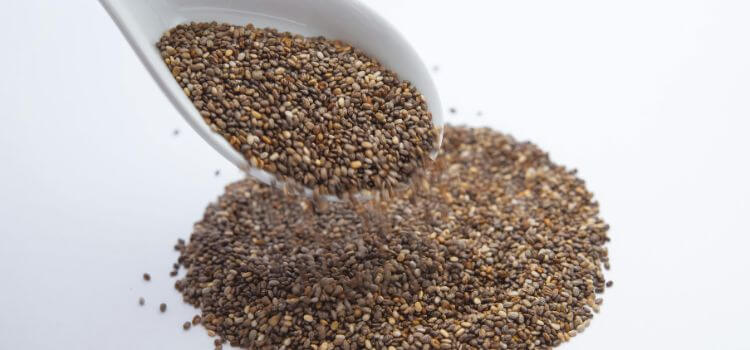As an Amazon Associate, I earn from qualifying purchases.
Yes, you can use any seeds for hydroponics, no doubt about it. Hydroponics uses mineral fertilizer solutions in water to grow plants without soil. Hydroponics depends on seeds, which can make or break your efforts.
Every step demands accuracy and knowledge, from choosing the right seed to growing a healthy seedling. Controlling the plants’ habitat and thriving in small areas are among its benefits.
Starting your hydroponic garden from seeds is an exciting but somewhat delicate venture. This guide will take you through every step to ensure you can cultivate any seeds using a hydroponic setup.
Hydroponics Seed Cultivation
Seeds are the beginning of all plant life and play a crucial role in the quality and yield of your hydroponic garden. They hold the genetic potential that, given the proper care, will sprout into a healthy, productive plant.
In the context of hydroponics, paying attention to the type and quality of seeds and the seeding method is essential.
Do You Need Special Seeds for Hydroponics?
Before shuffling through your seed bank, you might wonder if hydroponics requires a unique set of seeds. The short answer is no; you don’t need specialized seeds to start your hydroponic adventure. Any regular seed in your garden soil can also be planted in a hydroponic system.

The magic of hydroponics lies in its ability to provide water, nutrients, and oxygen directly to the plant roots. This practice is not about the seed type but the environment in which it grows. However, some seeds are better suited for hydroponic systems and can enhance your growing experience.
Selecting Seeds for Your Hydroponic
Selecting the right seeds for your hydroponic system is the starting point for success. Some seeds are more suited to hydroponic growth than others.
Starting a hydroponic garden from seeds, select seeds known for blossoming in hydroponic conditions. Lettuce, basil, mint, tomatoes, and peppers are examples. Tree seeds grow well in average soil and outdoors.
When choosing seeds for your hydroponic system, there are a few factors to consider. While you have flexibility, these tips can help optimize your growing experience:
Freshness
Fresh seeds are more likely to germinate and grow successfully. Selecting seeds from a reputable supplier is your best bet if you’re starting.
Variety
Beyond the type of plant, you should also consider the specific variety. Some varieties within a plant species may grow too large for your system, while others may be more compact.
Consider the space, time, and energy you invest in your hydroponic garden. Smaller varieties may be more manageable and require less time to mature.
Suitability for Hydroponics
Some plants are considered ‘hydroponics-friendly’ because they’ve been shown to do very well in these systems. It’s worth starting with a more forgiving plant of any learning turn you might encounter.
Your Preferences
Ultimately, your plant should align with what you enjoy eating or growing. Feel free to start there if you’re doing this for a hobby and have specific favourites.
5 Easy-to-Grow Seeds for Hydroponics
Hydroponic gardening has become famous for growers looking to optimize space, save water, and increase yields. Hydroponics feeds plants with a nutrient-rich water solution instead of soil, saving time and effort. Here are five easy hydroponic seedlings that yield outstanding results if you want to try them.

Basil Seeds
Basil may thrive in hydroponics and add a unique sweet and savoury flavour to your food. It thrives with hydroponics’ continuous moisture and nutrients.
Why basil is ideal for hydroponic systems:
- Basil demands a regular watering schedule, a default feature of hydroponic systems.
- It prefers warmer temperatures, which you can easily control in your indoor hydroponic setup.
- Basil grows relatively quickly, so you can enjoy fresh leaves within a few weeks.
Tips for successful basil cultivation:
- Provide ample light, at least 6-8 hours per day.
- Ensure the water temperatures stay between 65-70°F (18-21°C).
- Advance bushier growth and discourage flowering, which can make leaves bitter. Prune regularly.
Lettuce Seeds
Hydroponic lettuce is delicious and convenient, providing a continuous harvest with minimal space requirements. With a rapid growth cycle and a high water content, growing lettuce hydroponically is great for soil-less gardening.
Benefits of growing lettuce hydroponically:
- Hydroponic systems stop the need for frequent soil checks, making lettuce cultivation largely hands-off.
- You can control the environment to prevent the bolting (flowering) that makes the plants bitter and inedible.
- The water conservation aspect of hydroponics is particularly suited to lettuce, which is comprised mainly of water.
Best hydroponic lettuce growing procedures
- Use a non-circulating hydroponic system like the Kratky method, perfect for water-loving plants like lettuce.
- Ensure the water’s pH is between 5.5 to 6.5 for optimal nutrient uptake.
- Maintain a consistent water level and temperature to encourage rapid, healthy growth.
Spinach Seeds
Spinach is not only a nutritional powerhouse but also a hydroponic-friendly crop. It grows well in various hydroponic systems and can provide ample amounts of iron and vitamins A and C without needing soil.
Advantages of spinach in hydroponic
- Spinach likes cooler temperatures, making it suitable for the controlled environment of a hydroponic garden.
- The crop’s rapid growth means you can have a continuous supply of fresh spinach with staggered planting.
- Hydroponic spinach is less prone to soil-borne diseases and pests, leading to healthier plants.
How to cultivate spinach using hydroponics
- Use a raft or deep water culture (DWC) system to provide enough space for the spinach to grow.
- Consider high-intensity discharge (HID) lighting for optimal growth.
- Keep the nutrient solution well-aerated to avoid root rot.
Tomato Seeds
Tomatoes can be more challenging than other plants, but there are benefits to growing them hydroponically. Avoiding soil-borne diseases and pests is significant. A hydroponically grown tomato’s taste is often best for its soil-based replication.
Growing tomatoes hydroponically
- Select tomato varieties known for suitability in hydroponics, such as cherry or grape tomatoes.
- Install support structures, such as trellises or cages, to help the plants grow.
- Tomatoes require more attention to their nutrient solution (EC levels and pH balances) than other plants, so investing in a quality meter is wise.
Cilantro Seeds
Hydroponic cilantro adds flavour to numerous dishes without the significant turnaround periods of other herbs. Moreover, hydroponic cilantro tends to be less prone to bolting, so you get a longer harvesting window.
Growing cilantro in hydroponic environments
- Cilantro prefers cool temperatures, similar to growing spinach hydroponically.
- Start with a suitable variety—sometimes, cilantro is sold as a “slow bolt” specifically for these purposes.
- Consider using a passive sub-irrigation system to maintain the proper moisture levels without drowning the roots.
Care tips for hydroponic cilantro
- Ensure the plants have ample light, at least 6 hours of direct or 12 hours of fluorescent light daily.
- Keep the EC levels of your nutrient solution mild. 1.0-2.5 is adequate.
- Harvest regularly to promote regrowth and to avoid a buildup of nutrient solution in the plant tissues, which can affect flavour.
Planting Seeds in Hydroponic Systems
You’ll use a seed starter tray with individual cells or a growing medium for planting. This allows for easy movement of seedlings into the primary hydroponic system.

Seed Spacing and Depth
It’s essential to plant seeds at the correct depth. This depth is usually four times the diameter of the seed. If the seed is too deep, it may exhaust its energy supply before reaching the surface. It may dry out or be easily disturbed if it’s too shallow.
Optimal Growing Conditions
Your seed trays should be placed under a grow light in an environment with consistent temperatures and high humidity. Remember, you create the perfect environment for the seeds to sprout and flourish, so every detail matters.
Monitoring Seed Growth
Once your seeds are planted, keeping a close eye on their germination progress is essential.
Tracking Germination
Make notes on when you planted the seeds and when you expect to see germination. Check daily for signs of growth and adjust the environment as needed to ensure the seeds progress.
Identifying Issues
If seeds are not sprouting, many issues, such as incorrect temperature, improper moisture, or seed quality, may be at play. Troubleshoot these issues by adjusting the environmental controls and considering seed quality.
Frequently Asked Questions About Hydroponic Seeds
Yes, generally, you can use any seeds for hydroponics. However, some varieties are better suited to hydroponic cultivation than others due to their size, growth habits, and nutritional needs.
Lettuce, spinach, and kale overgrow and are easy to care for, making them ideal for hydroponic beginners. Herbs like basil, mint, and cilantro are also great for starting.
To germinate seeds for hydroponic systems, start by soaking them overnight. Next, place them on a moist germination pad or rock wool cubes, ensuring they have indirect sunlight and consistent moisture. The seeds should sprout within a few days to a week.
The growth rate for hydroponic seeds varies by plant type. Fruits and giant vegetables take months to mature, but leafy greens can be harvested in 4 to 6 weeks. Hydroponics often leads to faster growth rates compared to soil planting.
Seeds for hydroponics can be purchased at garden centers, specialty online stores, and some general retailers. No formal “hydroponic seeds” criteria exist, but choosing hydroponic-friendly kinds is crucial.
Conclusion: Can You Use Any Seeds for Hydroponics?
Starting a hydroponic garden from seeds is a gratifying way to witness the entire life cycle of your plants. It requires patience, attention to detail, and the willingness to learn through trial and error.
Remember that every seed, plant, and growing season is a chance to improve your hydroponic garden and enjoy its richness. Happy planting!

